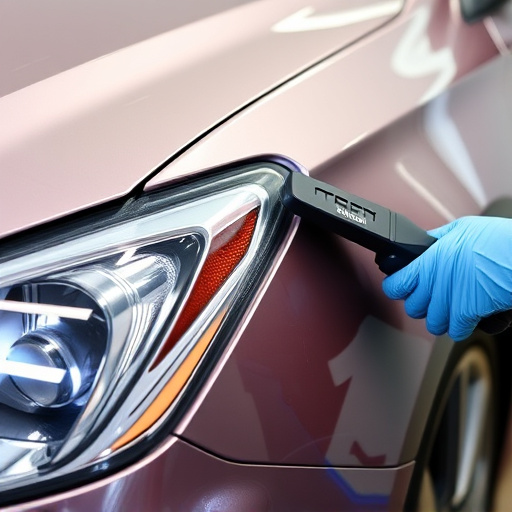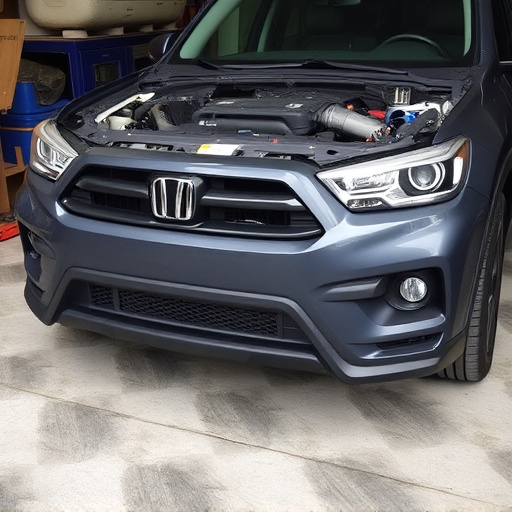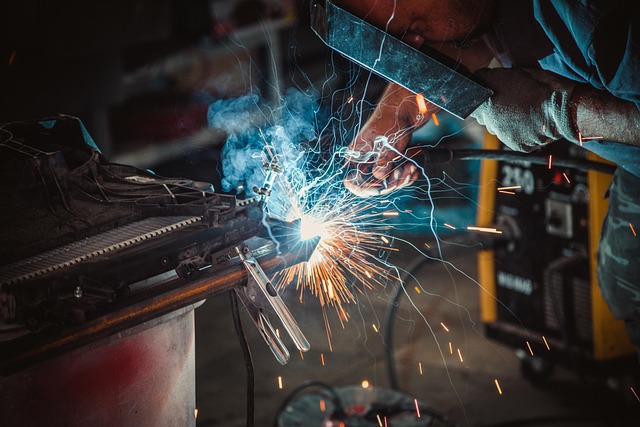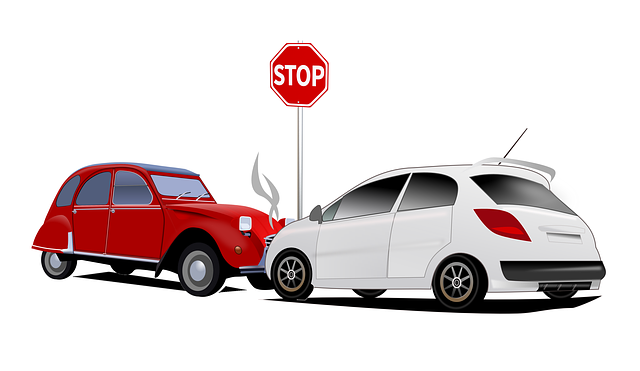EPA compliant body shops prioritize both worker safety and environmental protection in the automotive industry. They adhere to EPA standards by using low-VOC or water-based paints, advanced ventilation systems, strict waste management protocols, and providing comprehensive employee training. These practices not only reduce exposure to harmful toxins but also enhance operational efficiency and foster a culture of safety. Customers choosing EPA compliant body shops support eco-friendly practices and contribute to a healthier workplace and community.
In today’s regulated environment, understanding and adhering to EPA standards is paramount for body shops. “How EPA Compliant Body Shops Reduce Worker Exposure to Toxins” explores the crucial role of compliance in creating a safer workplace. We delve into practical strategies that mitigate risks associated with toxins, enhancing worker well-being. By implementing these measures, body shops not only meet EPA guidelines but also foster a healthier, more productive environment. Discover the benefits of an EPA-compliant shop and its positive impact on both employees and business success.
- Understanding EPA Compliance in Body Shops: A Brief Overview
- Strategies for Reducing Worker Exposure to Toxins
- The Benefits of an EPA-Compliant Body Shop Environment
Understanding EPA Compliance in Body Shops: A Brief Overview

In the realm of automotive aesthetics and safety, EPA compliance is a cornerstone for body shops, particularly when undertaking tasks such as dent removal and vehicle paint repair. The Environmental Protection Agency (EPA) sets standards to ensure that operations within these shops do not compromise environmental health or worker safety. These standards govern the handling, disposal, and emission control of various substances, including volatile organic compounds (VOCs), which are commonly found in paints and solvents used for paintless dent repair.
Body shops that adhere to EPA guidelines employ advanced techniques and equipment during processes like vehicle paint repair. They invest in low-VOC or water-based paints, sophisticated ventilation systems, and proper waste management protocols. This commitment not only minimizes the shop’s environmental footprint but also significantly reduces worker exposure to toxins, fostering a safer and healthier workplace environment, especially considering tasks like dent removal that were once reliant on toxic chemicals.
Strategies for Reducing Worker Exposure to Toxins

To reduce worker exposure to toxins, EPA compliant body shops implement a multi-faceted approach that goes beyond basic compliance. These strategies include employing advanced ventilation systems that extract harmful fumes and particles from work areas, ensuring proper training for employees on safe handling procedures for toxic substances, and regularly maintaining equipment to minimize emissions.
Additionally, auto collision centers and bumper repair facilities adopt innovative practices like using less toxic alternatives for paints and adhesives, implementing closed-loop spray booths for paint jobs, and promoting a culture of safety where workers are encouraged to report any potential hazards. These measures not only protect the health and well-being of employees but also contribute to creating a safer environment within the auto body shop, enhancing overall operational efficiency.
The Benefits of an EPA-Compliant Body Shop Environment

An EPA compliant body shop environment offers numerous benefits for both workers and the community at large. By adhering to Environmental Protection Agency (EPA) standards, these facilities implement robust safety protocols designed to minimize worker exposure to harmful toxins commonly found in automotive repair processes. This compliance translates into a healthier, safer workplace where employees can perform their duties without worrying about long-term health risks associated with toxic substances.
Moreover, an EPA-compliant body shop contributes to environmental sustainability by ensuring that waste materials and emissions are properly managed. Auto glass repair, auto collision repair, and other related services become more eco-friendly as these shops employ advanced techniques and technologies to reduce the ecological footprint of their operations. This commitment not only aligns with broader environmental conservation efforts but also instills trust among customers who prioritize sustainability in their choice of auto collision center.
An EPA compliant body shop not only adheres to strict environmental regulations but also prioritizes worker safety by minimizing exposure to toxins. By implementing strategies such as proper ventilation, using eco-friendly products, and enforcing rigorous cleaning protocols, these shops create a healthier work environment. The benefits extend beyond compliance, including increased employee morale, reduced turnover rates, and enhanced reputation among environmentally conscious customers. Choosing an EPA compliant body shop ensures not only the protection of workers but also contributes to a more sustainable future.














